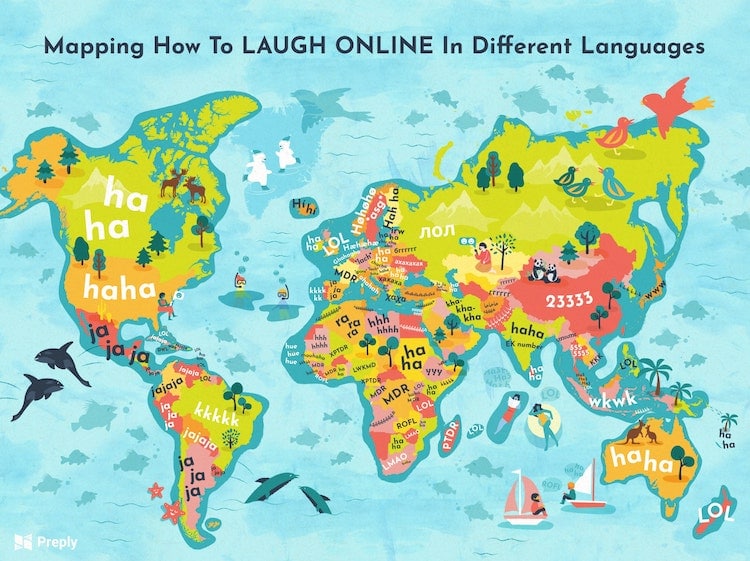Laughter is a universal language that brings people together from different cultural backgrounds. In each country, the style of laughter often reflects the unique characteristics and idiosyncrasies of its people. From loud bursts of laughter to gentle, warm smiles, the way countries around the world laugh can be a reflection of their values and social norms.
In some cultures, laughter is seen as an emotional bridge to relieve stress, while in others it can be an expression of unbridled joy.
Laughter is an expression we are born with. In fact, babies as young as three months have demonstrated this ability. As humans, laughter also plays an important role in social contexts; we tend to laugh 30 times more often in a shared situation than when we are alone.
Laughter is the Sound of the Heart
Humans have a variety of ways to laugh, from grunts to chuckles, but the classic belly laugh is the gold standard that sounds the same all over the world, transcending physical and cultural differences. This means that spontaneous laughter in India is no different from laughter in the Philippines.
That's laughter, the universal language. But when laughter is put into words, there is a Tower of Babel effect. A map from Preply, an online language learning platform, shows how 26 major languages around the world transcribe laughter into two categories: onomatopoeia and description. Some use words that mimic the sound of laughter (like "cuckoo" or "mumble"), while others use initialisms like "LOL," which is also used in many languages.
The Way They Laugh
Across continents, many languages use onomatopoeia as a way to express laughter around the world. These laughing languages follow the phonetic rules of each language, which can sometimes sound strange to non-native speakers.
In Spain, their laughter sounds like jajaja, while in Norway it's høhøhø, and in Portugal, the sound "kkkkk" echoes joy. In fact, Korean also use kkkkk because the Korean letter keu (크) is their way of laughing.
However, when you get to Greece and Ukraine, their laughter is reminiscent of a weird game of tic-tac-toe, but they basically just say haha (or ahah) using a non-Latin alphabet. In Belarus, however, they seem to have a unique way of laughing, with the word "bgggg" sounding like they're expressing a sarcastic laugh.
If you go deep into the land of China, you will find different ways they express laughter in online writing. They use words like haha (哈哈), hehe (呵呵), and hihi (嘻嘻), but they also often use a series of numbers like 23333, which refers to the old laughing out loud emoji. In Thailand, they use a group of five, pronounced "ha," to express laughter. Laughter flows beautifully across languages and cultures.
Meanwhile, in Japan, they use www, which is an abbreviation and repetition of the word "laugh"-the funnier the joke, the more "w" letters are used, a principle also found in some other languages. Indonesian, however, has a different approach, with wkwk currently more popular than haha as a cool way to laugh online - not an abbreviation of another word, but rather a different representation of the same sound.
France has also taken a creative approach, replacing onomatopoeias such as hahaha and héhéhé with initialisms such as MDR (which stands for mort de rire, literally "to die laughing") and xptdr, which is a contraction of xpldr (explosé de rire) and ptdr (pété de rire), meaning "to explode laughing". While in Senegal, the French-speaking community prefers to use mouhaha, which describes wicked, ingenious laughter.
LOL in English is also global, and many languages have adopted it, even in different scripts such as Russian (ЛОЛ). There are also other variations of English used to represent laughter, such as haha and LMAO ("laugh out loud").
In Nigeria, they often use LWKMD, an abbreviation of a phrase in pidgin English that means "laughing to death". In Jamaica, they refer to DWL, an abbreviation of a local phrase meaning "laughing to death. In Liberia, they prefer ROFL ("rolling on the floor laughing"), while in Sweden, asg stands for asgarva ("laughing out loud"). Similarly, Germans use lach and grin to express laughter.
In Indian cyberspace, laughter is often transcribed as haha or sometimes by the number EK - where "ek" in Hindi means number one, describing "I rate this number one" as a common response to a tickling joke.
Meanwhile, the Malaysian phrase Ha3 Ha3 Ha3 expresses excessive joy by repeating "ha" three times.
The Turkish laugh stream uses dkdkd, although there is no definitive explanation as to why this pattern was chosen. Sometimes it seems that people also use random character sequences to represent unstoppable laughter - laughter so intense that it spills over the keyboard.
Meanwhile, the fishbone symbol used in Egypt, Syria, and some other places is actually the Arabic letter "h" repeated many times, which is another way of conveying laughter.




















